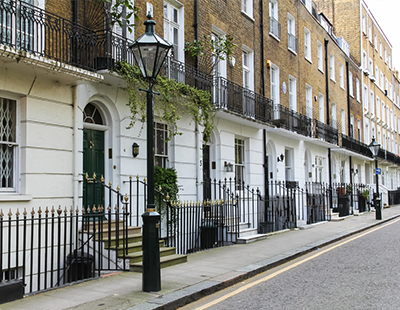Underlying profits were still 97% ahead of the pre-pandemic 2019 comparative of £17.8m, Savills said.
The annual report showed UK transactional revenue decreased by 1% to £208.3m during the year, which Savills said was “significantly ahead” of its expectations.
Second-hand sales revenue declined by 5% with a reduction in the number of exchanges of 17% to 6,124.
This was offset by an increase in the average sales value by 14% to £1.68m.
Volumes in the regional UK market declined significantly in line with expectations, Savills claims, however Central London volumes remained relatively robust.
Meanwhile, new homes revenues were up 8% year-on-year, reflecting a 17% increase in the average value per exchange which more than offset the 4% reduction in the number of exchanges.
This was primarily due to growth in London, which helped to mitigate reduced demand in the regional markets.
Savills said: “In the UK, the housing market remained stronger for longer than anticipated, with the prime London housing markets particularly resilient.
“The international nature of the prime London market, with lower dependence upon mortgage financing relative to the wider markets and attractive valuations in a global context, should partially mitigate the effect of further volume reductions in the residential market overall.”
Across the business, Savills reported a 7% annual rise in group revenue to £2.3bn but pre-tax profits decreased 16% to £153.9m.
Mark Ridley, group chief executive of Savills, said: "Performance in 2022 was slightly ahead of our expectations despite challenging markets.
“More importantly, perhaps, the group's performance was substantially ahead of the 2019 'pre-COVID' comparative period. The strength of our less transactional businesses, primarily consultancy and property management, helped underpin the group's performance overall.”
He said challenging macro conditions are expected to continue with inflation and interest rates remaining in focus for some time, adding: “As a result, the speed at which individual investment markets adjust to the cost of debt is uncertain, although certain markets, such as the UK, are recalibrating faster than in the past, and will be helped by the lack of development supply and an overall trend to sustainability.
“We would also expect that the release of Covid restrictions in Greater China paves the way for progressive improvement in real estate markets in the region.”
Ridley said Savills has started 2023 broadly in line with our expectations.
He added: “However, it is clear that, at this stage, predictions for the full year are characterised by a wide range of possible outcomes; we believe that the first half of 2023 will be more challenging than its 2022 comparative, however, we expect progressive improvement through the second half of the year.
"2024 should see more positive conditions for real estate market activity and Savills is both retaining its bench strength and investing in advance of such recovery."







.png)






.png)


.png)




Join the conversation
Be the first to comment (please use the comment box below)
Please login to comment